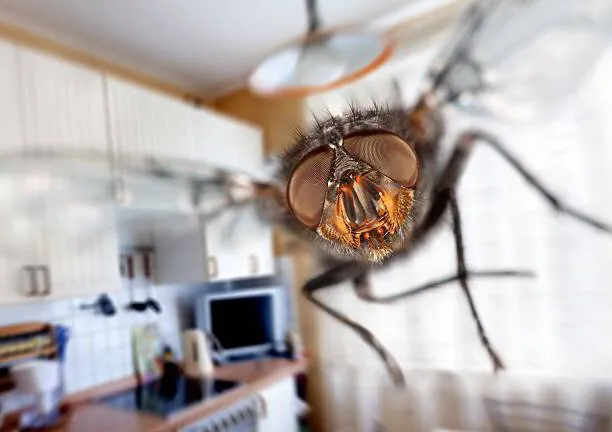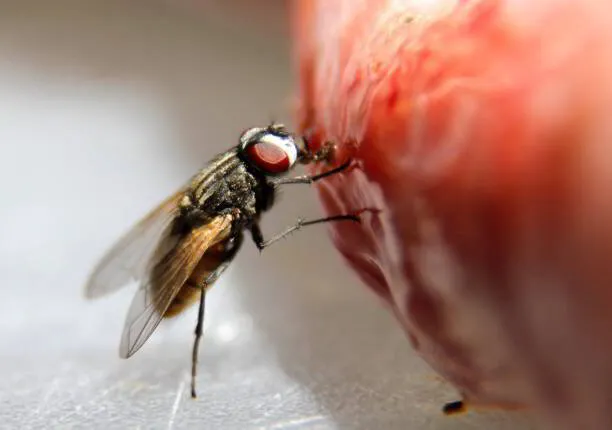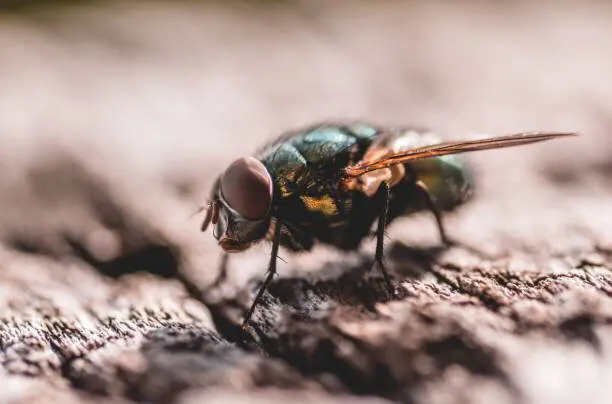Our Commitment to a Fly-Free and Safe Environment
At Amco Pest, we recognize the challenges posed by house fly infestations. Our House Fly Control Solutions are designed not only to eliminate existing issues but also to proactively prevent future infestations. Through meticulous inspections, strategic removal methods, and ongoing support, our dedication is to uphold the safety, hygiene, and comfort of your property, ensuring it stays fly-free and protected from the risks associated with these pests.
Our Commitment to a Fly-Free and Safe Environment
At Amco Pest, we recognize the challenges posed by house fly infestations. Our House Fly Control Solutions are designed not only to eliminate existing issues but also to proactively prevent future infestations. Through meticulous inspections, strategic removal methods, and ongoing support, our dedication is to uphold the safety, hygiene, and comfort of your property, ensuring it stays fly-free and protected from the risks associated with these pests.
House Fly Solutions for Home & Business Owners
House Fly Solutions for Home & Business Owners
Why is House Fly control necessary?
The presence of house flies in our residential or commercial spaces can introduce various risks and challenges. One major concern is the potential for health hazards, as house flies are known carriers of diseases and attract parasites. Their constant presence near humans increases the likelihood of spreading illnesses and contaminants. Additionally, house flies can compromise the cleanliness of our living or working spaces, creating unsanitary conditions.
Effective house fly control is crucial to prevent the risks associated with their presence. Amco Pest Solutions provides comprehensive House Fly Control Solutions designed to eliminate existing infestations and prevent future occurrences. From thorough inspections to strategic removal methods, our commitment is to ensure your property remains hygienic, safe, and free from the health risks posed by house flies. Addressing these issues responsibly is essential to maintain a healthy and comfortable living or working environment.
Disease Transmission
House flies are known carriers of numerous pathogens and bacteria that can cause diseases in humans. They pick up these contaminants from decaying organic matter, garbage, and other unsanitary locations and then transfer them to food and surfaces, posing a significant health risk.
Food Contamination
House flies are attracted to a variety of food sources, both human and pet. Their habit of regurgitating and defecating on the food they land on can contaminate it with bacteria and other harmful microorganisms, leading to foodborne illnesses.
Rapid Reproduction
House flies have a short life cycle and can reproduce quickly. A single pair of flies can produce hundreds of offspring in a short period, leading to large infestations. Their rapid reproduction rate makes it challenging to control their populations without effective pest management strategies.
Understanding House Fly Intrusion
Explore the nuanced realm of house fly control in our insightful video. While house flies may seem inconspicuous, their presence can lead to various issues for residential and commercial properties. Our video unravels the mysteries of house fly behavior, detailing their breeding habits, preferred environments, and the potential threats they introduce into human spaces. Discover effective strategies and insights to keep your property free from the challenges posed by house fly infestations.
Understanding House Fly Intrusion
Explore the nuanced realm of house fly control in our insightful video. While house flies may seem inconspicuous, their presence can lead to various issues for residential and commercial properties. Our video unravels the mysteries of house fly behavior, detailing their breeding habits, preferred environments, and the potential threats they introduce into human spaces. Discover effective strategies and insights to keep your property free from the challenges posed by house fly infestations.
How We Manage House Fly Intrusions
Thorough Inspection
Our house fly control process begins with a comprehensive inspection of your property. Our skilled technicians identify breeding sites, entry points, and conducive conditions to develop a targeted action plan.
Customized Treatment Plans
We tailor our control strategies to the specific needs of your property. Whether it's utilizing insecticides, baits, or traps, our solutions are customized to efficiently address the house fly population while minimizing environmental impact.
Breeding Site Removal
Identifying and eliminating breeding sites is crucial. We focus on removing organic matter, such as decaying food or waste, which attracts and sustains house fly populations. This disrupts the lifecycle and prevents future infestations.
Thorough Inspection
Our house fly control process begins with a comprehensive inspection of your property. Our skilled technicians identify breeding sites, entry points, and conducive conditions to develop a targeted action plan.
Customized Treatment Plans
We tailor our control strategies to the specific needs of your property. Whether it's utilizing insecticides, baits, or traps, our solutions are customized to efficiently address the house fly population while minimizing environmental impact.
Breeding Site Removal
Identifying and eliminating breeding sites is crucial. We focus on removing organic matter, such as decaying food or waste, which attracts and sustains house fly populations. This disrupts the lifecycle and prevents future infestations.
Exclusion Measures
Our experts implement exclusion measures to seal entry points and prevent house flies from accessing your property. This proactive approach helps in reducing the likelihood of reinfestation.
Education and Prevention
We empower property owners with knowledge about house fly prevention. Our team provides insights into sanitation practices, waste management, and other preventive measures to minimize conditions favorable to house fly infestations.
Ongoing Monitoring and Support
Our commitment doesn't end with the initial treatment. We offer ongoing monitoring to ensure the effectiveness of our control measures. If needed, we provide additional support to maintain a house fly-free environment on your property.
Exclusion Measures
Our experts implement exclusion measures to seal entry points and prevent house flies from accessing your property. This proactive approach helps in reducing the likelihood of reinfestation.
Education and Prevention
We empower property owners with knowledge about house fly prevention. Our team provides insights into sanitation practices, waste management, and other preventive measures to minimize conditions favorable to house fly infestations.
Ongoing Monitoring and Support
Our commitment doesn't end with the initial treatment. We offer ongoing monitoring to ensure the effectiveness of our control measures. If needed, we provide additional support to maintain a house fly-free environment on your property.
Wanna be added to our news and notifications updates?
Leave your name and email, check your email and click accept on our subscription list



